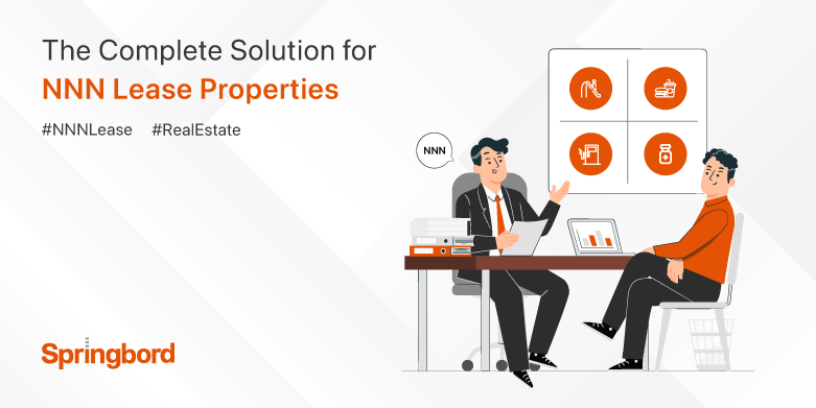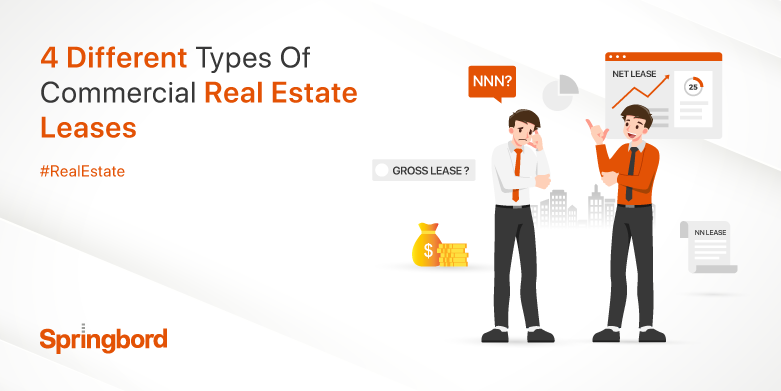 Read time 3 min
Read time 3 minAn NNN lease, also known as a triple net lease, is a form of commercial real estate leasing in which the tenant or lessee is responsible for all of the property’s operating costs. Along with rent and utilities, this sum also accounts for property taxes, insurance, and maintenance.
Tenants have complete transparency regarding their monthly payments for rent, utilities, and taxes with a triple net lease.
Because the tenant is responsible for all maintenance costs, the base rent for this type of commercial lease is typically lower than that of other lease types.
Multiple Net Leases
If you’re new to the commercial real estate market or if you’re trying to decide how involved you want to be in your next investment, learning the difference between a gross and a net lease is essential. The different kinds, and what they have to offer, are listed below.
Triple-net lease with no exceptions: The landlord is responsible for absolutely nothing during the lease term.
Hybrid triple net or double net with modifications: Landlords are responsible for minor maintenance, including the roof, parking lot, and structure.
Triple net properties
Businesses such as dollar stores, fast food restaurants, medical clinics, daycare centres, gas stations, and convenience stores are examples of triple-net lease properties that are not solely dependent on economic cycles. In addition to being resilient to economic downturns, these strategies are as effective against epidemics.
When a company needs a new NNN property, it will employ a developer to construct it. A developer sells these properties to a buyer who then enters into a standard, non-negotiable triple-net lease with the corporation for a period of ten to fifteen years. Existing triple net properties can be bought and sold like any other type of real estate, with the exception that the new owner will take over the lease with the same number of years and terms that were previously in place.
A few Exemplifications of the Triple-Net Approach are:
- Markets specializing in Auto Components
- Inexpensive retail outlets
- Stores selling medicines
- Fast food restaurants
- Places where children can go to play and learn
- Auto detailing services
- Quick-service eateries
- Retail Stations That Sell Gas
- Facilities for medical care
- Animal hospitals and vet shops
- Casual dining establishments with quick service restaurants (QSRs)
- Distribution center
These types of properties also typically meet the three most important NNN investing criteria, including tenant creditworthiness, a high-quality location, a lease type and duration, and a track record of profitability across a wide range of economic conditions.
What Does a Triple-Net Lease Cover?
Knowing exactly what you’re getting into before signing a triple net lease is crucial to its success and the mutual benefit of all parties involved. Among the most common provisions in a contract are:
- Rent Payment Every Month (base rent)
- Expenses for Operation
- Insurance and taxation
- Uses of property
- The utilization of the communal facilities.
Remember that in a NNN lease, the tenant may be responsible for covering the cost of repairs and maintenance to the building’s physical structure.
When a triple-net lease is up for sale, who can make the purchase?
All investors, regardless of age or profession, can find success in triple-net leased properties. A $1.5 million in liquid assets and a 30-40% down payment qualify you to purchase a triple net.
- To save money and retire early without having to deal with a landlord, many successful professionals including doctors, lawyers, engineers, web developers, and others invest in NNNs.
- Due to the security and low maintenance required, triple nets are increasingly preferred by commercial real estate investors over gross lease properties.
- Triple net properties are purchased by retirees and stock market investors who are looking for stable investments.
Triple net lease properties provide a stable monthly income stream for a long period (potentially decades) in exchange for minimal management responsibilities and periodic rent increases, as well as the opportunity to diversify across asset type, location, tenant, and lease type.
Internal rate of return (IRR) can be as high as 7-10% or more depending on factors such as tax benefits, rent increases, potential leverage, tangible capital value, and financing terms, which are comparable to gross lease investments and stock market returns.
Conclusion
Due to the high demand for triple net lease properties and the fact that many of these properties are never available on the open market, functioning with a Springbord Net Lease Advisor at no additional cost may be your only option for acquiring the property of your dreams.
The team at Springbord Net Lease Advisors acts as your advocate from the beginning of the property search to closure and even beyond.






